Hay Festival: Essay from The Welsh Way – All Mothers Are Working Mothers
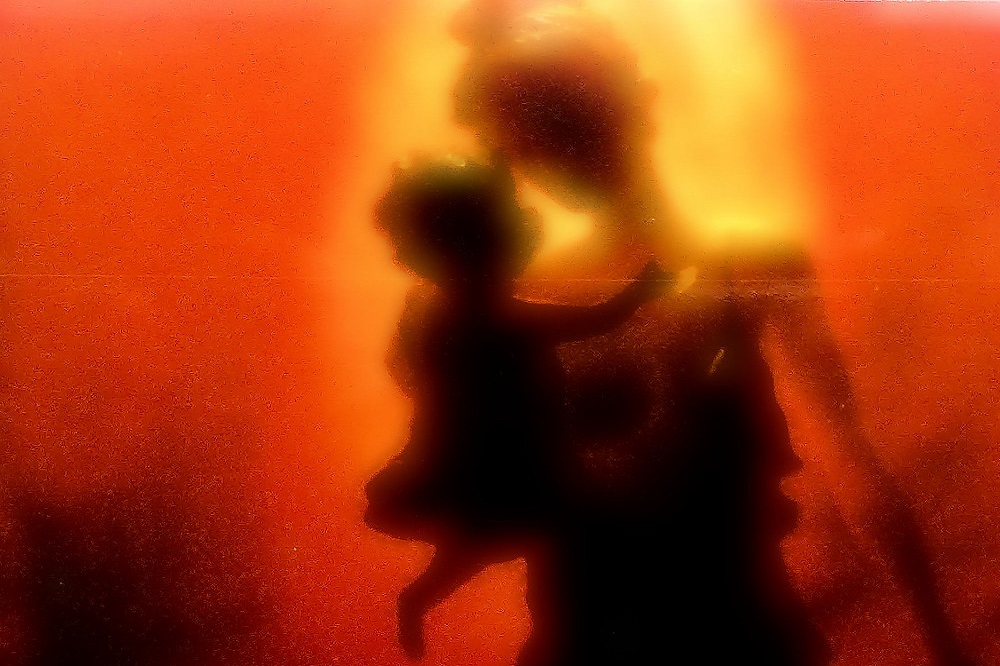
At this year’s Hay Festival the author of The Story of Wales, Jon Gower; contributors Mabli Jones (Chair of Cymdeithas yr Iaith Gymraeg), Catrin Ashton (Communist Party); and Huw Williams, one of the editors will be discussing The Welsh Way: Essays on Neoliberalism and Devolution which was published by Parthian in 2021.
Challenging the rhetoric of Welsh Labour and its record in power – and the broader perception of the British left – its wide range of author-activists, practitioners and academics dissect the narratives, policies and assumptions that structure perceptions of our politics, and tackle the myth that Welsh politics is somehow more progressive than that of its neighbours.
In anticipation of the event Nation Cymru will publish two of the essays this weekend, the first of which is by Catrin Ashton who lives in Bedlinog in the south Wales valleys and is a Communist.
Catrin Ashton
This is the farm road. It leads from the mountain and its wild moorland, back to the village of Bedlinog that sits hacked into the slopes of the Taf Bargod valley.
After running on the open windy terrain of Cefn Gelligaer, the farm road feels like the home straight.
The landscape is tamer here, sheep are brought to its lower slopes during lambing season; in the hedgerows nettles grow and cowslips, with bluebells in the shaded spots.
Families have long walked here; children ride alongside their parents or grandparents on bikes and scooters.
I walk here with my own children, pushing my little boy in his pushchair mid-morning, lulling him to sleep while my little girl runs beside me.
We’re running! she exclaims full of amazement. We are! I answer, it’s true.
The breeze dances, playing in our hair and my little boy falls asleep to the sound of our voices and the warm song of the world around him.
A path leads to the woods below and to the spot where Pit Number 2 stood, in the days when the village was one big coal mine. We stop here, it is our cafe.
Oh, thank you for coming to see me! my little girl says to me, in Welsh. What would you like today, chips and beans? She serves me chips of grass, beans of stones or woodland sorrel in the spring.
It is around this time that my little boy wakes and we wend our way home, the three of us and the buggy.
In the springtime we stop to watch the lambs or newborn calves teetering on spindly legs. They’re feeding! My children call out in wonder – still young enough to know the pleasure it brings.
When I run here on my own, I hear their voices. I see their chubby little hands fumbling for moss, or stones or a cwtch. Their laughter mixes with the sound of the stream and I am tricked for a second, turning my head to look, knowing they are not there really, yet catching myself looking still.
Just here the road rises, the gradient a little steeper, and I’m surprised at how easy it is to run it without the struggle and negotiation of carrying a little boy who’s just woken up, cajoling his by-now-sleepy (and sometimes crying) sister, while pushing the buggy and sometimes a scooter too.
But this daily ritual of walking with and carrying my children is something I hold onto tightly, knowing it will inevitably end.
This period of having children has felt like one long pause (of sorts). A moment of stepping out of life as I knew it and seeing the world from a completely different angle.
I watch it whirr by with all its drama as I slow down: allowing my pockets to be filled with twigs and feathers; turning over rocks, watching spiders and woodlice going about their day as we slowly, slowly, go about ours.
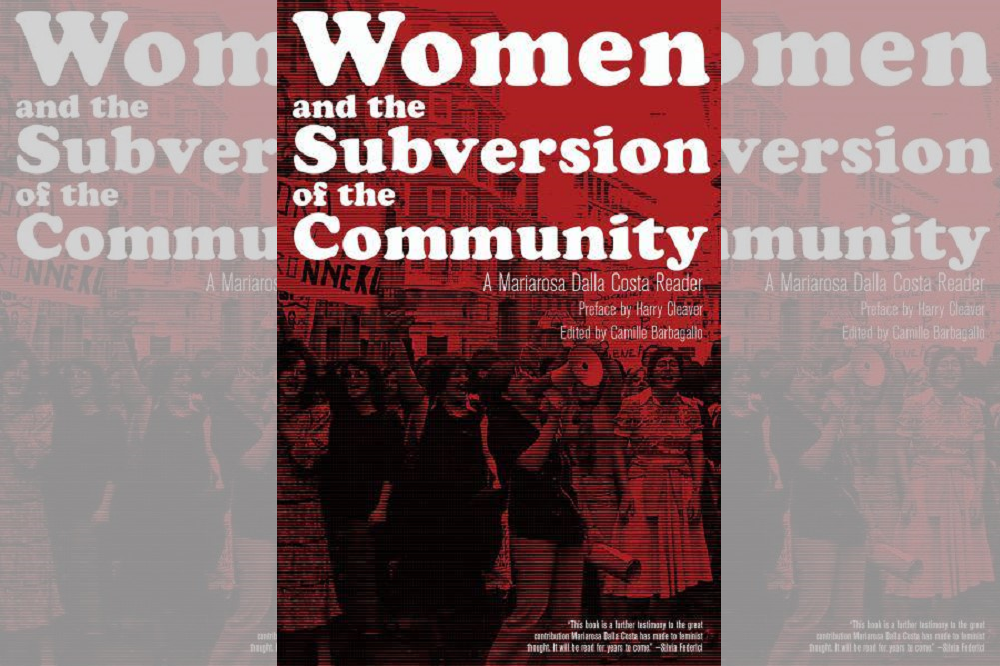
‘Wages for housework’
With the birth of my children came many beautiful presents; but one gift stood out from all those others. It arrived a few months later and it made me stand up a little straighter, not feel so vulnerable.
It was sent by a friend from Australia and it was a well-read, slightly battered copy of an out-of-print booklet from 1972. The pamphlet, by Mariarosa Dalla Costa from Italy and Selma James from the USA, is called The Power of Women and the Subversion of the Community.
It uses a feminist reading of Marx to analyse the situation of mothers staying home to care for their children.
What I found astonishing was that the circumstances of a mother who stays at home to look after her children has hardly changed in over forty years, and of course, much longer before that.
I was also shocked at myself: I had not taken into account, or thought seriously about, the history of the role I was stepping into.
I was excited too that this pamphlet, originally written in Italian, had been translated into many languages and had started an international movement demanding rights for housewives.
In Padua the ‘Wages for Housework’ campaign was launched by Selma James, Brigitte Galtier, Mariarosa Dalla Costa and Silvia Federici, but by the end of the 1970s groups belonging to the movement had sprung up in the USA, Britain and many other countries around Europe.
The pamphlet insists that reproductive labour is fundamental to waged work: it generates the workers of the future; it cares for the children of those in waged work as well as, in the sense of domestic work more generally, taking care of the waged-labourers themselves through household chores – all integral aspects of a capitalist society.
Engels states that: “The determining factor in history is, in the final instance, the production and reproduction of the immediate essentials of life … On the one side, the production of the means of existence, … on the other side, the production of human beings themselves, the propagation of the species.”
Yet, despite its centrality to capitalist accumulation, it is not considered productive enough to deserve a wage. In fact, a mother caring full time for her children is not considered to be working at all.
We depend on the wages of a partner (if there is one) and if that wage is too small we are dependent upon supplementary government benefits that fluctuate in relation to our partner’s income.
This does not only affect the ‘traditional’ working class. Many workers in our society do not receive a fair living wage – even at the cultural and national institutions that we are so proud of here in Wales.
Freedom of choice
A single full-time mother on benefits is not considered to be working either, and on top of having to fulfil this role alone, the stigma of financial dependence is more obvious.
The fact that these benefits are decidedly not a wage but are considered ‘handouts’ that are means-tested further disrespects the work that these women accomplish under extremely difficult circumstances.
Returning to waged work would give us autonomy, but it would not allow us to care for our children.
And there lies the crux of the issue. Where is the freedom of choice?
At six months, nine months or one year our babies are utterly dependent on us but not yet eligible for government-funded childcare, or school nursery places.
So what are we to do? We are expected to pay for childcare, though many of us can’t afford it.
In areas of Wales deemed deprived, it is possible to receive 30 hours free childcare from the age of two years via the Flying Start scheme.
In areas of Wales not deemed deprived the Welsh Government introduced the Childcare for 3 and 4- year-olds scheme.
The guidelines state, amongst other criteria, that in order to be eligible to apply, parents of lone-parent families need to be working and parents of two-parent families must both be working.
This offer does not help parents who do not work but would like to return to work. Nor does it attempt to help those who do not wish to return to work as they want to care for their own children but consequently have to live in low income or zero income households.
Even in families where both parents manage to work through a mix of full-time and part-time jobs, depending on extended family for childcare, the household income of many of these families still does not raise them out of poverty.
They are the working poor who depend on government schemes such as Child Tax Credits and Universal Credit in order to survive.
The limitations of these schemes mean that it is almost impossible for families to prosper, and for children to flourish, on so little money. There has been much research and many surveys high-lighting the debilitating restrictions of these schemes.
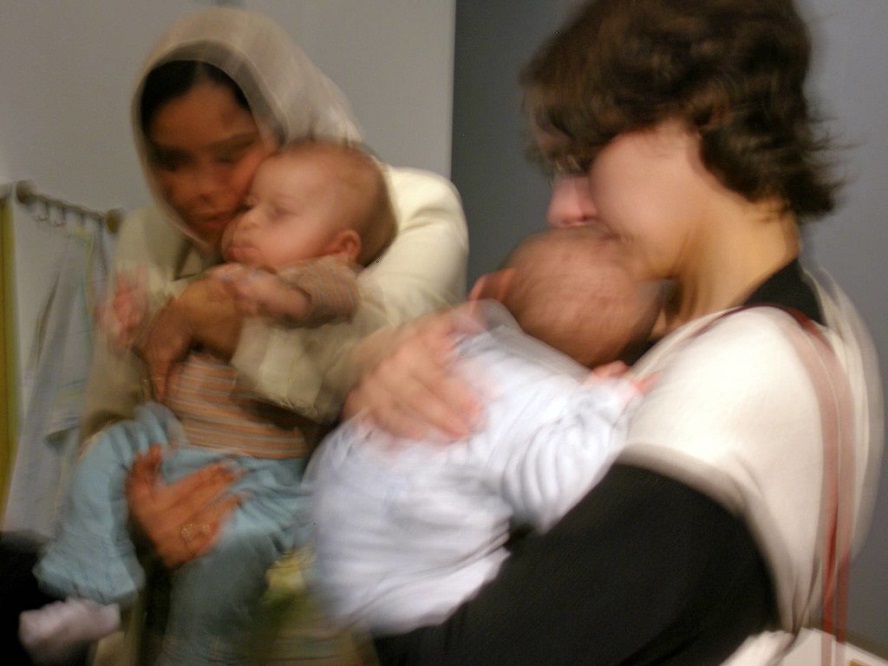
Child poverty
One such report is the Child and Family Poverty Survey Report published in July 2020 by the charity and national umbrella body Children in Wales, which states that ‘Poverty happens when a family’s resources fall below what they need, including taking part in their local community or society more generally.’
The Welsh Government defines poverty as ‘A long-term state of not having sufficient resources to afford food, reasonable living conditions or amenities or to participate in activities (such as access to attractive neighbourhoods and open spaces) that are taken for granted by others in their society.’
In the ‘Low Wages’ chapter of that same report it states that ‘Low wages are one of the major causes of child poverty in Wales.
Many respondents to the survey, as well as participants at regional child poverty events held across Wales, spoke of the paucity of decent paid work in some parts of Wales.’
Paying parents a good wage to look after their children would pull families, and therefore children, out of the poverty trap.
Our culture tends to stereotype women, splitting them into opposing categories. This trend continues in the way that motherhood is superficially constructed within our society: the flip side of the single mother on benefits is the phenomenon of the ‘yummy mummy’ of affluent communities who lives on via Instagram and wellness blogs.
We are used to hearing about the ‘juggling act’ facing middle-class working mothers (but we are all working mothers!).
What we don’t tend to hear so much about is the situation of the stay-at-home mother who has no other choice: her economic situation allows her none, as childcare is too expensive to make having a job viable.
Nor do we hear so much about those who choose this role despite knowing it will consign her to economic struggle and dependency.
Productive labour
This situation is complicated by the fact that watching your children grow, helping them to negotiate the world is also a privilege. It is special, fleeting and poignant. And this is another reason why it’s inconceivable to some that what we do is work.
We are not doing anything remotely revolutionary: we are not chief executives of successful companies, we are not scientists or engineers, we are not monetising our lifestyle projects from our bespoke kitchens.
We are just at home, covered in splodges of food and snot and felt-tip pen … It is often felt that we are not really doing our part for the feminist cause at all: we are not being dazzling or interesting, not pushing any boundaries.
Finding this pamphlet showed me the possibilities of groups of women uniting to demand better working conditions through wages and, consequently, the recognition that what we do as mothers is labour: moreover, it is productive labour, and it is essential.
By confronting the irrationality of the fact that a stay-at-home mother (for want of a better term) does not get paid for her labour, the infrastructure of the whole system underpinning this begins to fall apart – as does neoliberal feminism.
Because regardless of how many CEOs or directors are women, as long as this system of organising our society is upheld, we will always need a body of workers to look after our children until they are old enough to be sent to school.
This body of workers consists of parents, family members, child minders, nannies and nursery staff – the overwhelming majority of whom are women.
The dominant neoliberal model of feminism – where we try to enter the workforce demanding the same positions, opportunities and wages as men – is a capitalist take on what it means to be a woman.
Capitalism offers only the illusion of choice by ignoring – and in turn forcing us to ignore – our own biology.
We go back to work despite the sadness that we feel at leaving our babies; if we were still breastfeeding at the time, we also often end up dealing with mastitis or engorged breasts as we cannot feed our babies during those hours that we spend at work.
If we do not return to waged work we also find ourselves in the difficult situation of having no real community in which to raise our children in any manageable way.
Capitalism has disbanded the community – which is absolutely necessary to women if we are to recover from childbirth properly and raise children happily – by forcing everybody that it possibly can into waged labour, leaving hardly anyone around to help us.
Revolutionary response
Although the feminist struggle has allowed women to go out to work it has not yet freed us as mothers.
The movement granted us access to those roles traditionally handed out to men and gained further ground in recent years with the campaign for freedom of information relating to pay, with demands for equal wages.
Although necessary, this is still an example of women trying to be equal in a society that is organised around the high-earning capitalist class and the male worker, rather than an alternative version of society, organised considering the needs of children and their mothers.
As Mariarosa Dalla Costa pointed out, all of these demands – access to workspaces, equal pay, free childcare – are reactionary, defensive responses to our situation.
The only revolutionary response is the demanding of a wage because it is the demanding of a wage that forces us to ask questions about the nature of care in our society and to ask what kind of futures are possible for our children: what kind of life can they hope for?
In her 1975 essay ‘Counterplanning from the Kitchen’ Silvia Federici (of the Wages for Housework Campaign) writes:
“Our Power as women begins with the social struggle for the wage, not to be let into the wage relation (for we were never out of it) but to be let out of it, for every sector of the working class to be let out.”
It echoes Selma James, who insists that the working class is always anti-capitalist, always revolutionary and is constantly fighting to be a self-governing power outside of capital so that it can eventually get rid of itself as a class.
The working class is always looking for that power that will allow it to rid itself of its own slavery.
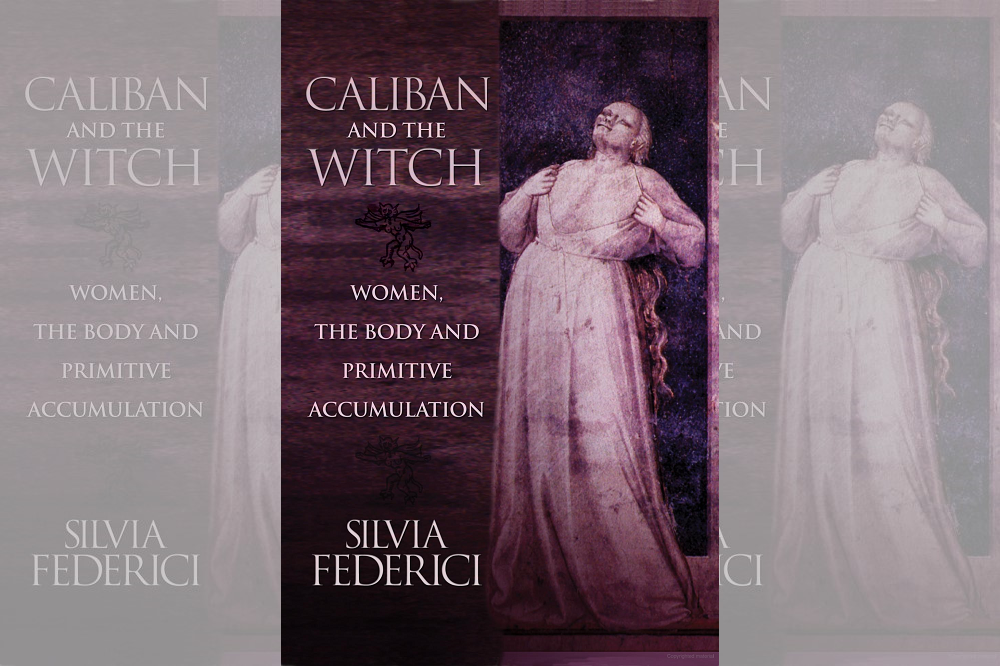
Expression of power
The women’s movement is an expression of that power. So is the black movement. So are the movements of schoolchildren and students who are resisting their capitalist present and future as workers, as labour power
In her 2004 book Caliban and the Witch, Silvia Federici traces the low wages of women in the workplace back to the transition to capitalism.
Across Europe, starting in the late fifteenth century, women were expelled from workshops by craftsmen (assisted by the urban authorities), and also banned from other waged work before being banished to the home where they were not paid for their labour (now named ‘housekeeping’).
This normalised the practice of not paying women a wage at all or simply paying them a much lower rate than men.
From this perspective it seems illogical that we demand equal wages for women in the workplace without also demanding an actual wage for mothers – or for any parent – whose work it is to look after their children full time
Neither does it help if middle to high-earning parents are still willing to pay nursery staff or their cleaner (all usually female) the minimum wage. Yet what is the alternative?
Most families are unable to cope financially on just one income and, other than resorting to economic precarity or state benefits, going back to work is the only option. This is only made possible if, as a society, we pay our child-minders very badly – or not at all.
Denying women a wage for their reproductive labour, or paying them as little as possible for their care work, is a means of repressing the female population and, consequently, the working class in general.
In Caliban and the Witch Federici considers the concept of primitive accumulation (also discussed by Marx):
“primitive accumulation was not simply an accumulation and concentration of exploitable workers and capital. It was also an accumulation of differences and divisions within the working class whereby hierarchies built upon gender as well as ‘race’ and age became constitutive of class rule and the formation of the modern proletariat.”
Universal basic income
One of the most significant differences within the proletariat is that division between the waged and the unwaged worker but also, just as critically, the difference between the amount of wage earned by individuals each year.
This difference in wage is played upon by the ruling class, pitting the ‘benefit scroungers’ and the working-poor against other, ‘successful’ and ‘hard-working’ citizens.
This system rewards the champions with good homes, holidays abroad and nice cars while the rest are left struggling to hold it all together.
Along with considerably longer maternity and paternity leave, paying parents a decent wage for raising their children would be a step towards allowing women a real choice when it came to working or being at home with their children.
The Welsh Government has recently announced its plan to trial Universal Basic Income. This could work alongside UBI.
The revolutionary element lies in the political significance of paying mothers/parents a wage for caring for their children: something that is missing if we discuss only UBI.
If a mother’s reproductive labour was taken seriously and paid seriously, the repercussions would allow for all care work to be taken seriously: it would set a precedent for nursery staff to earn better wages along with cleaners and those working in care homes or helping the vulnerable members of our communities.
In short, it would not just be mothers or parents: many of the working poor and the unwaged poor would be brought out of poverty if their labour was fully acknowledged and if their wage reflected the essential nature of what they do.
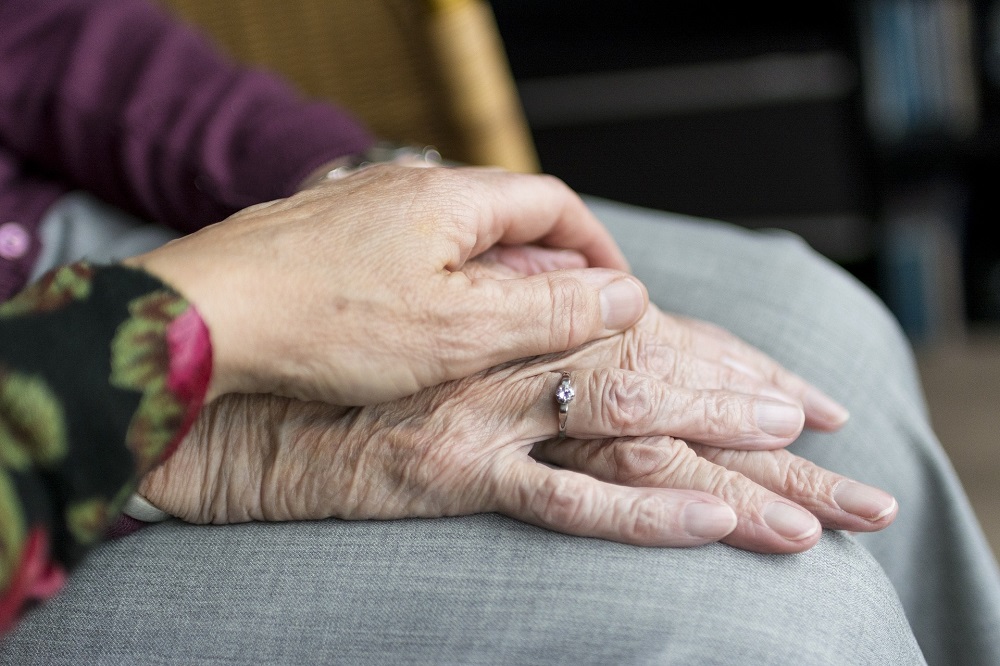
End of life care
It is difficult to discuss childcare without also discussing the care that we will need at the end of our lives.
When women care for their children without a wage, they are placing themselves in a vulnerable position when they are older.
In Wales, as in the rest of the UK, if you are receiving benefits you do not automatically pay your National Insurance and are not necessarily reminded to do so either: this is significant as our pensions are based on our National Insurance contributions.
Women (because the majority are overwhelmingly women) who have cared for their own children without a wage, often go on, in later life, to care for elderly parents and sick spouses and many do not even receive the full state pension for doing so.
In Bedlinog, the village in the South Wales valleys where I live, a common sight around teatime is plates of food under foil being taken to family members who need assistance.
But looking after parents in their old age often involves much more than this. These women are bathing their parents or elderly family members at night, washing them when they have been ill.
Many times a day they wash clothes and bedclothes soiled with diarrhoea and sick, they give emotional support – and it is hard to watch the giants of your life begin to fail.
Time and time over, in those hours between official care visits, they pick up bloodied parents from the floor after a fall, always dreading what they will find as they turn the key in the lock.
Cuts to services in Wales mean that there is not enough support for the elderly and their families – mainly the women – who are helping them to cope.
Although health is a devolved matter in Wales, the Welsh Government has privatised care work and has repeatedly refused to countenance the idea of nationalised care.
Compare this to Scotland where Nicola Sturgeon has resolved to build a National Care Service as a lasting legacy of the Covid-19 crisis.
Financial security
What does this say about our politics in Wales and the way that we are governed? We seem to subscribe to the myth that we are an inherently socialist country without truly questioning what that would actually mean and what socialist policies would look like.
We are run by an over-whelmingly neoliberal government but as a nation we seem to have swallowed its policies almost without question, as though it were the politics of common sense, when all along we could have been aiming for something so much bigger.
In her 2009 essay ‘On Elder Care Work and the Limits of Marxism’ Silvia Federici writes:
“As feminist economists have argued, the crisis of elder care, whether considered from the viewpoint of the elders or their care providers, is essentially a gender question. Although increasingly commodified, most care work is still done by women and in the form of unpaid labour … Thus, paradoxically, the more women care for others the less care they can receive in return, because they devote less time to waged labour than men.”
Insisting on a decent wage to raise children also, by extension, insists on a decent pension in old age.
It would allow working-class women who have spent a lifetime caring for others the dignity of a financially secure, economically stress-free old age.
Where capitalism succeeded in making women’s work invisible, socialism – despite its unions, political education and workmen’s halls – failed to make our labour visible again.
The very term ‘workmen’s halls’ – part of my up-bringing in the valleys – irritates me now. How could men ever have imagined the struggle was theirs alone?
One of the ways in which capitalism divided the proletariat was through its war on women. By not recognising the reproductive labour of women as equal to all other work, socialism is failing the working class as a whole.

Struggle for equality
Women have, fundamentally, been left out of the struggle for equality, so that even as basic a concept as demanding a wage for a mother’s labour seems radical.
In Wales, however, a new campaign is forming, inspired by Wages for Housework, working towards securing a wage for mothers/parents and consequently securing a pension, too, for their labour.
The choice to look after our children in a financially secure setting should be available to all – not just the wealthy.
We hope that this campaign will help place the question of care at the forefront of Welsh Government policies, because one day our children will be the older generation and they will need comprehensive care all over again.
When my own children reach the end of their lives, I will no longer be around to help them – but I want them to be safe when I am not here.
That will require a good pension and a transformation of the way we organise ourselves as a society by placing children and care work at the heart of everything that we do.
As the domestic workers’ movement based in Madrid, the Territorio Domestico, insists ‘Sin nosotros no se mueve el mundo’ – without us the world does not move. We have a lot of work to do, but as Silvia Federici and others have shown, this is not a utopian vision.
Through a combination of direct action and protest, all over the world communities of people are defying what is expected of them and organising themselves according to their own needs and values.
They show us that these changes are possible: especially, I hope, in Wales.
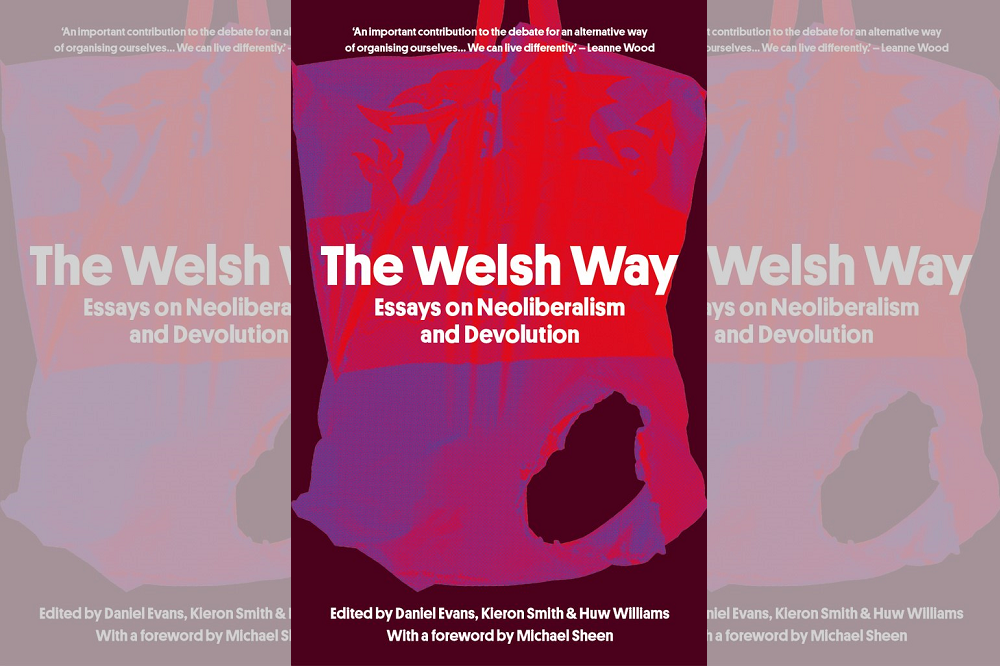
This essay is from The Welsh Way: essays on devolution and neoliberalism published by Parthian, which is the subject of an event at the Hay Festival on Wednesday 1 June.
Support our Nation today
For the price of a cup of coffee a month you can help us create an independent, not-for-profit, national news service for the people of Wales, by the people of Wales.






I would like to know more about the reasoning why it would be necessary to “pay mothers/parents a wage for caring for their children” if UBI was implemented. Genuine question, because I want to understand.
All the proposals for UBI include paying parents/guardians a percentage of the standard UBI amount for any children.
Would people be encouraged to have more children if they also received a wage? Basically becoming “professional parents”?
Is that something that could impact our ability to combat climate change?